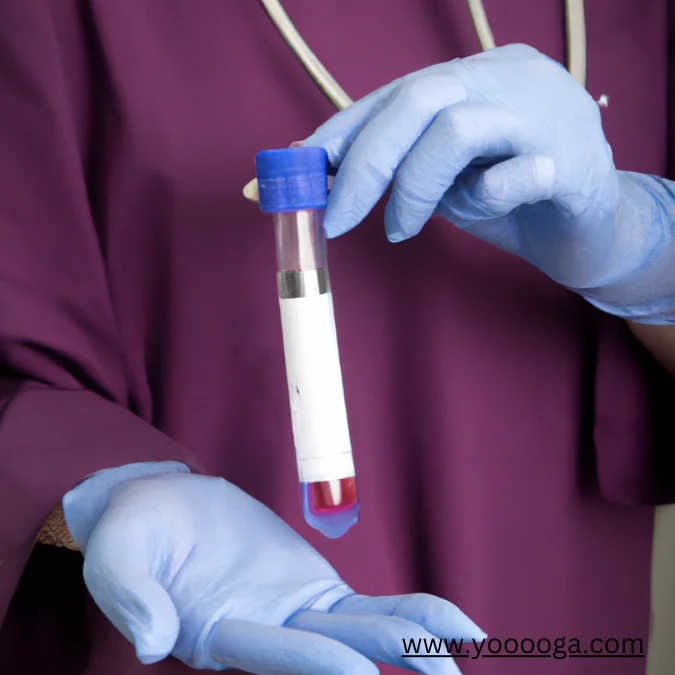HEALTH AND FITNESS
The Life of a Traveling Phlebotomist: Bringing Healthcare to Your Doorstep

Embark on a journey into the dynamic world of healthcare on wheels with us as we explore the life of a traveling phlebotomist! Imagine bringing crucial medical services right to people’s doorsteps, making a difference in their lives one blood draw at a time. Welcome to The Life of a Traveling Phlebotomist – where compassion meets convenience!
Table of Contents
What Is a Traveling Phlebotomist?
A traveling phlebotomist is a skilled healthcare professional who specializes in drawing blood for medical testing and transfusions. What sets them apart is their ability to bring their expertise directly to patients’ homes, nursing facilities, or other locations where traditional medical care may be challenging to access. Instead of waiting in long lines at clinics or hospitals, individuals can now receive essential lab services with convenience.
These mobile phlebotomists play a crucial role in ensuring that patients receive the necessary diagnostic tests they need without added stress or inconvenience. By traveling to different locations, they bridge the gap between patients and healthcare providers, making quality healthcare more accessible for everyone. This unique approach not only benefits patients but also contributes to overall public health by reaching underserved populations effectively.

Where do Phlebotomist work?
Phlebotomists have the flexibility to work in various healthcare settings, making their career diverse and dynamic. You can find these skilled professionals in hospitals, clinics, laboratories, and even nursing homes. In a hospital setting, they may draw blood from patients of all ages with different medical conditions.
Clinics offer a more focused environment where phlebotomists collect samples for testing purposes. Laboratories rely on phlebotomists to ensure accurate specimen collection and handling procedures are followed meticulously. Nursing homes benefit from having phlebotomists visit to provide convenient blood collection services for residents who may have difficulty traveling.
Additionally, some phlebotomists choose to work as traveling practitioners, bringing their expertise directly to patients’ doorsteps. This unique role allows them to serve individuals who require blood tests but cannot easily access traditional healthcare facilities.
What are the necessary skills to become a Travel Phlebotomist?
To excel as a traveling phlebotomist, a diverse skill set is essential.
• Attention to detail: Essential for delicate procedures like blood drawing. Precision and accuracy are crucial.
• Strong communication: Effective interaction with patients from all walks of life fosters trust and comfort.
• Adaptability: Preparedness to navigate different environments and handle unexpected challenges.
• Compassion: Showing empathy towards patients who may feel vulnerable or anxious is crucial for quality care.
Phlebotomist Job Description
As a phlebotomist, your job description revolves around collecting blood samples from patients for various medical tests and procedures. You will be responsible for carefully labeling and storing these samples to ensure accurate results. Your role also includes verifying patient information, explaining the procedure, and comforting anxious individuals.
Attention to detail is crucial in this role as you must follow strict protocols to prevent contamination or mislabeling of samples. A compassionate demeanor is essential when working with diverse patients who may be nervous about needles or unfamiliar with the process.
Moreover, maintaining a clean and organized work environment is key to ensuring efficiency during sample collection. Being able to adapt to different healthcare settings and interact effectively with varying personalities are vital skills that will enhance your performance as a traveling phlebotomist.
In addition to technical proficiency in venipuncture techniques, strong communication skills and empathy play a significant role in building trust with patients and providing quality care on the go.
How to Become a Traveling Phlebotomist
Phlebotomy is a career that combines healthcare and adventure. To start, complete a 4- to 8-month training program covering essential skills like venipuncture techniques and patient care. Gain hands-on experience in healthcare settings like hospitals, clinics, or blood donation centers. Obtain certification from organizations like the National Healthcareer Association or the American Society for Clinical Pathology to validate skills and demonstrate commitment to excellence. Network with healthcare professionals and use online job platforms to secure travel phlebotomy assignments across different locations.

How Long Does it Take to Become a Phlebotomist
Phlebotomy is a surgical procedure that involves a training program covering anatomy, physiology, and blood collection techniques. After completing the program, aspiring phlebotomists often gain hands-on experience through internships or clinical rotations. This practical training helps them develop skills and confidence for accurate venipuncture. After completing the program, individuals can sit for a phlebotomy certification exam, which can enhance job prospects and demonstrate proficiency in the field. The timeline to become a certified phlebotomist can vary but typically ranges from a few months to up to one year.
How to Get a Phlebotomy Certification
Traveling Phlebotomist Certification Process
• Research accredited programs for comprehensive training in venipuncture techniques and medical terminology.
• Enroll in and complete required coursework and practical training.
• Prepare for hands-on experience drawing blood from patients.
• Pass a certification exam administered by organizations like the National Healthcareer Association (NHA) or the American Society of Clinical Pathology (ASCP).
• Upon passing, become a certified phlebotomist ready for a rewarding career in healthcare services.
What is the Travel Phlebotomist Salary?
A traveling phlebotomist earns a competitive wage based on location, experience, and employer. They often receive additional compensation for their mobility and flexibility, working in various settings like homes, offices, or events. The demand for skilled healthcare professionals like traveling phlebotomists continues to grow, impacting salary expectations. This career path offers financial rewards and personal satisfaction, as it allows them to work independently and travel to different locations, providing convenient access to essential medical services.
Exploring the benefits of being a Travel Phlebotomist
Travel Phlebotomist Career Benefits
• Opportunity to explore different locations and provide essential healthcare services.
• Flexibility to create schedules and assignments that match personal interests.
• Independence and autonomy to tailor job based on personal preferences.
• Exposure to a wide range of cases and skills through working in different settings.
• Making a difference in people’s lives by bringing healthcare directly to their doorstep.
• Building meaningful connections with patients from various backgrounds.
• Fulfillment derived from helping others while exploring new horizons.
The importance of communication and adaptability in this job
A traveling phlebotomist must possess clear communication and adaptability skills to ensure patient comfort and understanding of procedures. They must be quick thinkers and flexible, navigating challenges like traffic delays and healthcare settings. Effective communication builds trust with patients, especially those anxious about blood draws outside traditional clinics. Listening attentively, explaining procedures clearly, and showing empathy are crucial for a positive experience.
Challenges Faced by Travel Phlebotomists and How to Overcome Them
Travel phlebotomists face challenges such as navigating unfamiliar environments, dealing with patient preferences, managing schedules, and maintaining blood sample integrity during transportation. Communication skills, organization, flexibility, and a positive attitude are crucial for overcoming these challenges. Building rapport with patients, staying organized, and staying flexible are also essential for gaining cooperation and trust.
Tips for staying organized and managing
Traveling Phlebotomist’s Schedule Management
• Create detailed daily itinerary with location and appointment times.
• Use digital tools like calendar apps for reminders and tracking.
• Pack phlebotomy kit the night before with necessary supplies.
• Maintain clean workspace for efficient work.
• Develop a routine for paperwork and documentation.
• Communicate effectively with patients about appointment times and procedures.
• Stay flexible and adaptable during unexpected delays.
• Prioritize self-care by taking breaks between appointments.
• Stay organized enhances the quality of care provided to patients.
Unique experiences and stories from different locations
Traveling phlebotomists experience unique experiences and stories from diverse communities, ranging from bustling cities to remote rural areas. They interact with elderly patients and help calm anxious children during blood draws. The beauty of being a travel phlebotomist lies in embracing these differences and learning from each experience, leaving a lasting impression.
Advantages for Patients and Healthcare Providers
Mobile phlebotomy services provide convenient blood sample collection at patients’ homes or workplaces, saving time and reducing travel costs. This service is beneficial for elderly patients, mobility-challenged individuals, and busy professionals. Healthcare providers benefit from timely and accurate sample collection, extending services beyond traditional clinics, and reducing wait times. This enhances healthcare system efficiency and accessibility for diverse populations.
Conclusion
As we wrap up our exploration into the life of a traveling phlebotomist, it’s clear that this profession offers a dynamic and rewarding career path. The ability to bring healthcare services directly to patients’ doorsteps is not only convenient but also crucial in ensuring access to essential medical care.
-

 GENERAL3 days ago
GENERAL3 days agoChristofle – For Those Who Dream of Family Heirloom Silver
-

 GENERAL2 months ago
GENERAL2 months agoUncovering the World of кинокрадко: The Dark Side of Film Piracy
-

 GENERAL2 weeks ago
GENERAL2 weeks agoUnveiling the Art of преводсч: How Translators Bridge Language Barriers
-

 YOGA3 weeks ago
YOGA3 weeks ago4 Person Yoga Poses for Beginners























